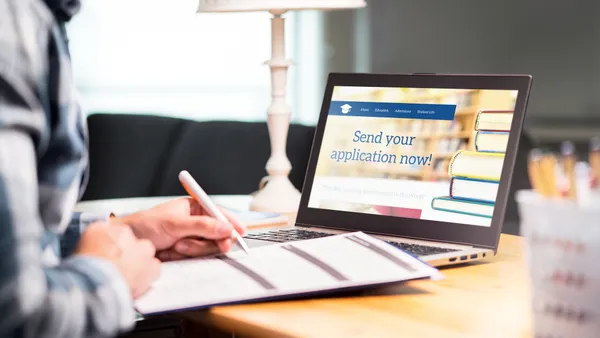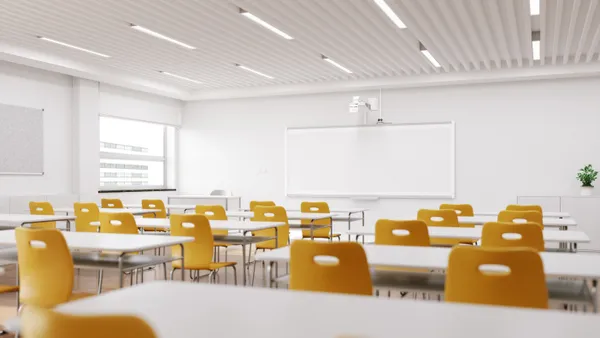Dive Brief:
- Educators in K-12 and higher education are finding that partnerships can benefit both sectors, according to a report from EdTech: Focus on K-12 that highlights cases where the two have creatively collaborated.
- Megan Toliin, director of technology and innovation for the Education Department at Indiana University–Purdue in Indianapolis said in an interview that area K-12 educators received assistance with technology for their blended classrooms in one such effort, and both college students studying technology and education got experience in schools that benefited both parties.
- The article describes a variety of ways such partnerships can be developed, including colleges helping K-12 schools with gathering and analyzing data, which is critical for budgeting and reporting. And universities can also use the data for research purposes.
Dive Insight:
These partnerships can revolve around research, assistance with technology, mentoring and college prep, development of curriculum, collaboration on training for useful career paths, and support for everything from advanced courses to after-school groups.
The University of Chicago’s Urban Education Institute partnered with Chicago Public Schools on a project designed to help more students graduate on time, which has been copied in some 20 other districts. The Institute gives schools a tool to evaluate each student with “on track” metrics, which schools can the use to determine the best academic intervention.
To give Staten Island high school students exposure to the college experience and an opportunity to serve the community, the Port Richmond Partnership Leadership Academy works with local schools and Wagner College to target sophomores who would be the first in their families to attend college, giving them a college experience. The program has been expanded to involve middle and elementary school students.
Also in New York, the East Irondequoit Central School District worked with a University of Rochester researcher to evaluate outcomes of a one-on-one device initiative, which led the college to create an advanced certificate in digitally-rich teaching. The professor involved became an ongoing consultant for the district.
And in Texas, the Houston Independent School District and Rice University formed the Houston Education Research Consortium to improve education for students in low socio-economic tiers, and it has been credited with building better support programs now in eight districts.







 Dive Awards
Dive Awards







